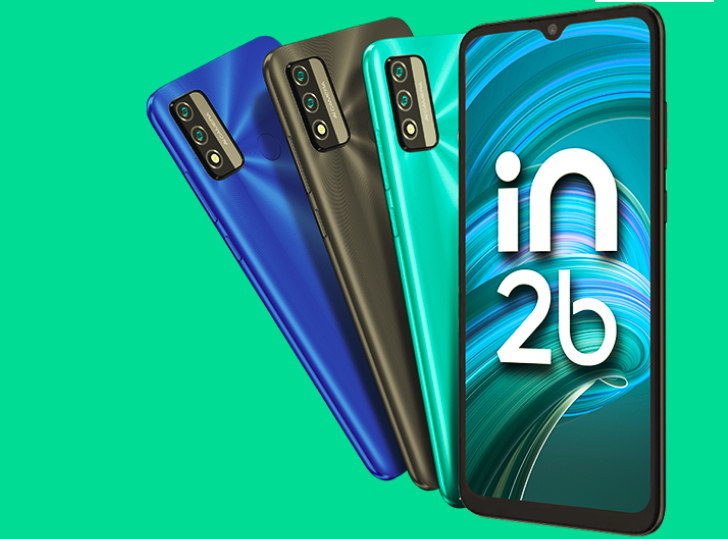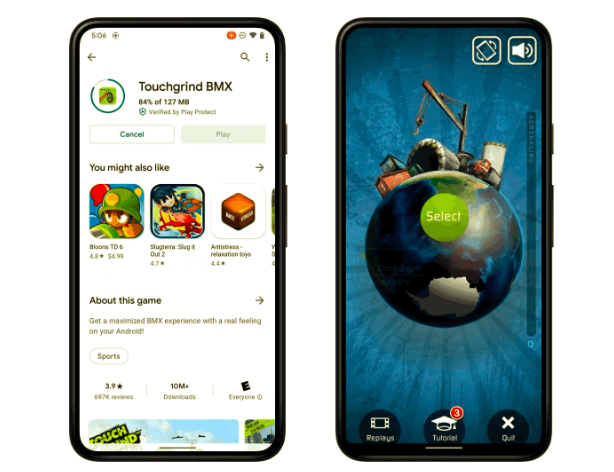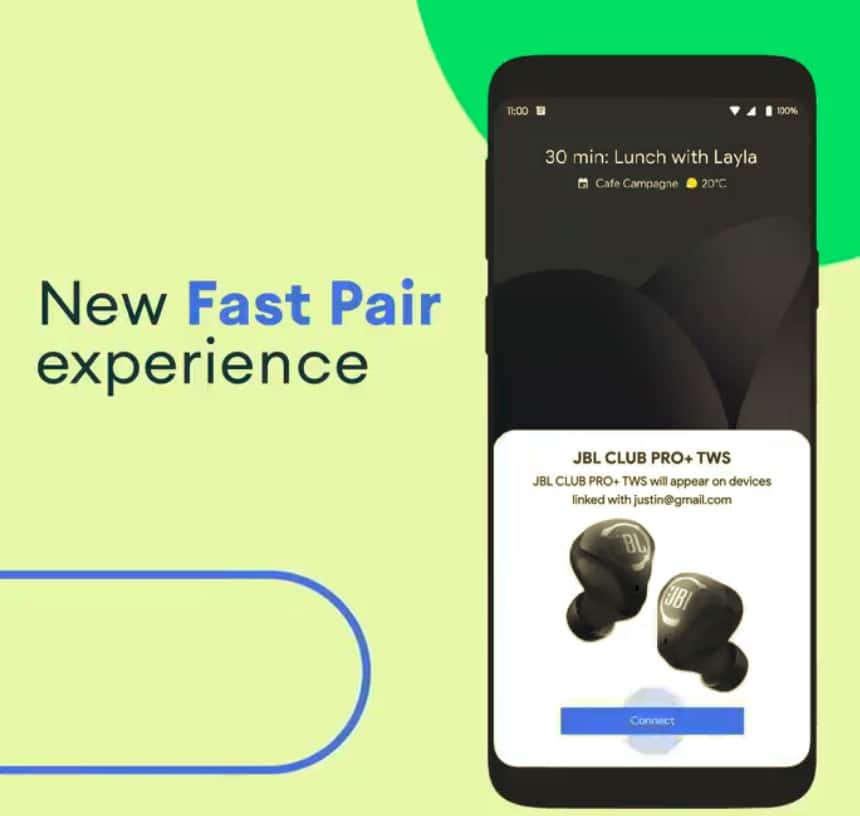Reviewing the Moto X Style after the launch of the two new Nexuses from Google proved somewhat surreal, since the Motorola devices of the last couple of years have also been Nexus in all but name, with the same Android, occasionally updated faster than some Nexus hardware, and with just a few Motorola utilities over the top. Putting comparisons with the Nexus 6P and Nexus 6, in particular, definitely in the frame. And, I venture to suggest, the X Style might even come out on top, despite being cheaper in most markets.
The Nexus 6 was too large, everyone now agrees, no matter all its other lovely features, the new 5X is a little too unambitious, while the 6P has, shall we say, ‘unique’ styling, so why not consider this, the Moto X Style in the same vein, for anyone who’s Android through and through? This device’s very name, in the USA, is the Moto X Pure Edition, perhaps emphasising that it’s virtually untouched from Google’s vision for the UI and applications. Plus it’s 5mm shorter and, crucially, 7mm narrower, at 76mm, than the monster Nexus 6 (83mm), all the while delivering a gorgeous screen that’s less than 0.3” smaller on its diagonal.

With the same magnificent front mounted stereo speakers, this should be all win then. What’s the catch?
There’s only one, and it may not bother you much, so don’t worry. You see, this is the sister device to the Moto X Play, which I reviewed here. But whereas the Play was centred around maximising battery life, the Style concentrates on looking good, sounding good and performing to the max. It succeeds, with the one slight caveat already mentioned.


Motorola Moto X Style – rear view, showing the grippy, textured back
Hardware
The design language is very familiar now – the metal chassis, plastic inserts and moulded, textured back, feeling great in the hand and providing maximum space for battery capacity. In some markets you’ll be able to use Motorola’s ‘Maker’ service to customise your own Style in their factories, choosing almost every external element, but in most world markets you’ll have to make do with ‘black and grey’ (as here) or ‘white and champagne’. The black’s perfect though – understated and, as they say, ‘goes with everything’.


Motorola Moto X Style – bottom section, showing one of the stereo speakers, virtual controls and Turbo Power-enabled micro USB port
Above and below the Gorilla Glass 3 screen are speaker protrusions – unlike on the X Play, this time they are both active, delivering true stereo when watching media. And they sound fantastic. Not Marshall London fantastic but loud and of high quality, up with the best of the rest.


Motorola Moto X Style – top section, showing second stereo speaker and FFC with LED flash
Around the rest of the frame are Motorola’s trademark ‘thin’ side buttons, a Quick Charge 2.0-compatible microUSB port, a 3.5mm headphone jack and a single pop-out tray, combining microSIM and microSD. It’s a slightly bizarre arrangement whereby each sits on the opposite side of the tray, but it’s economical with space and, along with Huawei’s similar approach seems to be the way the industry is heading. Hey, at least there’s storage expansion, unlike on the recent Samsung flagships!

Unlike the utterly broken microSD support on the ‘G’ range, the X Style recognised my standard 64GB microSD card of media instantly, which was a great relief. Having said that, going higher still, with a full card stashed with thousands of music files, might start to impact performance, so consider 64GB a practical maximum.

The 5.7” QHD display’s interesting in that it’s LCD and not AMOLED this time round for the X. But you still get all the Notifications at a Glance facilities that debuted on the original X, wherein anything that comes in gets popped up in icon form on the screen as you either pick the phone up from (e.g.) a table or even just wave your hand over the front proximity sensor (particularly useful in the night, when you can’t be too precise about anything in the dark!) You can then opt to slide up on any icons to see more details and, ultimately, into the application that they came from (e.g. Gmail).

QHD is becoming de rigeur on any screen of over 5.2” and sounds over the top until you realise that it’s just 1440p, i.e. less than half as much again in terms of resolution over the established 1080p displays of most top 5”-screened smartphones. Contrast and outdoor visibility is excellent, up with the very best displays from around in the industry. It’s crisp and impressive, with fairly neutral (i.e. not over-saturated, unlike most AMOLED screens) colours, even when ‘Colour mode’, in Settings, is set to ‘Vibrant’.
I’ve already mentioned the size advantages over the likes of the Nexus 6 – and I can’t emphasise this too much. Don’t switch off just because you see a screen size quoted at 5.7” – with incredibly small side bezels, the Moto X Style feels very manageable in the hand and I’d be happy using it as my main smartphone day to day.


Motorola Moto X Style – the 21MP f/2.0 rear camera
Imaging
On the back is a 21MP, f/2.0 camera inset into metal detailing, along with a two-tone LED flash. Driven by a powerful Snapdragon 808 chipset, this produces very decent photos in all light conditions, with some examples and 1:1 crops shown below. Performance, especially in HDR modes, was much better than on the Moto X Play, which in theory shares the same optics and sensor – I suspect that the difference is partly down to software updates since my Play review and partly down to the much greater power available for image processing here:



1:1 crop from the photo above, beautiful HDR detail



1:1 crop from the photo above, beautiful and crisp detail, plus good natural bokeh…



1:1 crop from the photo above, shot as part of a burst – and look at the tiny little winged visitor, photo bombing!





1:1 crop from the photo above, shot in very low light, yet details and noise are under control…



1:1 crop from the photo above, shot in ‘night’ mode, downsampling the full sensor to reduce noise, fairly successfully….
Although I’ve praised the HDR capabilities above, it’s worth noting that the ‘Auto’ aspect of it rarely worked properly – I found it much better to turn HDR on and off manually, so that at least I could anticipate what the software was going to do for each subject and scenario.
Focussing was fast and reliable in good light though, as you might expect, in low light is much slower, since the phase-detection auto-focus here is still optical and relies on enough light to work properly (we’re just starting to see active, infrared/’laser’ focussing systems come in for other flagships).
The biggest quirk of the X Style’s camera is the usual Motorola love-it-or-hate-it interface. By default, tapping the screen takes a photo, but you can turn on touch-focus, whereby you drag a reticule to focus and then rotate a fiddly control to adjust exposure. It all works and I learned to live with it, as you would do too if this was your main smartphone, bought with your own hard earned cash. Hey, I’m just flagging up that the camera application has a bit of a learning curve….


The touch-focus interface, turned on here, for control of focus point and exposure….
Video is captured at 4K without the Moto X Style getting too hot, though there’s no built in way to grab 8MP stills from footage, so you have to rely on third party tools like AndroVid to do this instead. The default is a more sensible 1080p, mind you, resulting in much smaller video files. Disappointingly, despite the presence of at least three microphones around the case, video sound is captured only in mono – maybe this can be fixed in a future software update. Also disappointing is that there’s no software stabilisation – or at least a way of controlling whatever the chipset does behind the scenes.
The Front-facing camera is 5MP and even comes with its own LED flash, though this – understandably, is somewhat blinding in use. And turning flash off in the settings also means that it’s turned off for the rear camera – I’d have liked to have seen separate settings for each camera mode. Still, that’s an easy software fix.
Software
As with the Moto X Play, it’s virtually ‘stock’ Android, i.e. equipped and set up like a Nexus, updated regularly and with just a few Moto tweaks over the top. There’s the Moto application suite, introducing a double-twist gesture for starting the camera, which make you look a little odd but does work, plus a slightly dangerous ‘double-karate-chop’ to launch the torch function. Dangerous to others should they be in the way(!) but mainly dangerous to your phone in case you let it slip to the ground in the process!
There are also the usual location and time specific profiles that you can set up to automate your life (‘Assistant’). All rather nice additions, without spoiling anything in the OS.

You also get the higher end voice stuff here too, thanks to the chipset used and thanks to Motorola’s own low power DSP – Digital Signal Processor. You can say “Hey there Moto buddy” (or whatever you’ve taught it in the ‘Moto’ app set-up!) even when the phone screen is off and then you’re into Google Now territory, though with a Motorola wrapper around it (which can delay results slightly, annoyingly). To be honest, I’ve had this facility on most of my flagship phones for two years now and I think I’ve used it about twice, other than when testing. But your mileage may vary, and it’s a neat tech trick if your hands are often busy (driving) or dirty (cleaning/working) etc.

Elsewhere, the Moto X Style, like all the other Motorola devices, is thankfully Nexus-like in terms of bundled applications (including the full Google suite, of course), notifications shade, settings, Google Now (off to the left of the default home screen), and so on. Making for a familiar experience and removing barriers from Motorola keeping the firmware bang up to date.

There’s a certain psychological let-down when you first open up the application drawer and see very little (just one and a half pages of apps), but this is very quickly replaced by contentment and elation as you realise that these Motorola devices aren’t bogged down by bloatware or unwanted services (Samsung, LG or Huawei-style) and that you can add whatever you want and really make the phone your own.
Performance
The Moto X Style is all about hitting top specifications, with (ahem) ‘style’, without requiring a top end price, and the Snapdragon 808, combined with the 3GB of RAM and QHD screen, produce an experience that’s almost identical to that on the (also Motorola-made) Google Nexus 6. In other words, top notch. Internal storage on the review device was 32GB, of which somewhere around 23GB were available out of the box, though you can also get 16GB and 64GB variants in some other countries (or, in the USA, any combination of specs and appearance you want, thanks to Moto Maker!)
I did mention a catch above – and it’s battery life. With a 3000mAh (sealed) cell and with no Qi wireless charging (sadly), the QHD/3GB/808 combination drives the Moto X Style into the ground faster than you may be expecting. Use this device intensively (e.g. on a big day out) and you’ll be out of power by tea-time. Guaranteed. Wireless charging would have helped, by letting you achieve quick top-ups with no inconvenience, but Motorola has a different plan – it has given the X Style ‘Turbo Power’.
This is Motorola’s name for standard Qualcomm Quick Charge 2.0, using higher voltages in a very controlled way, from a compatible charger, to help charge the phone battery much more quickly. The idea is that you can plug in via microUSB to the supplied Turbo Power charger block and achieve (for example) a 20% bump in charge state after just 10 minutes charging. I tried the ‘Turbo Power’ system and it worked exactly as advertised – if you have the special (or a compatible) charger to hand and mains electricity then a quick top up at the end of each afternoon is easily enough to see you through a busy evening.
Standards and biometrics
The use of microUSB rather than the new USB Type-C (rolling out across the industry in, for example, the new Nexus devices) is interesting, but remember that this brace of new Motorola phones was being designed over a year ago (a typical gestation period) and it’s only really in 2015 that Type C has been finalised, so I’d expect to see mainstream devices with this technology (reversible connector, more flexible generally) only really starting to appear in number at CES and MWC early in 2016. In the meantime, microUSB seems up to the job of handling the higher currents involved here, with a little message popping up on-screen, ‘TurboPower Connected’, and so on. You can, of course, charge the Moto X Style from any traditional microUSB charger, but only at the latter’s nominal output current at 5V.


The supplied 25W Turbo Power charger….
There’s one big omission here, compared to other flagships, of course – there’s no fingerprint or other biometric security feature. This doesn’t prevent you from getting involved in Android Pay and other similar schemes, but it does mean that you’ll have to use (e.g.) a PIN and then you’re not really saving time at a shop checkout when compared to a debit card. Whether any of this matters to you will depend very much on how hooked up Android Pay is in your country, but it’s certainly an omission, albeit unlikely to be a showstopper.
By the way, although not actually waterproof, Motorola calls the Moto X Style ‘water-repellent’, implying that it’ll survive an accidental dousing with beer or being caught in the rain, but you really shouldn’t dunk it in water except incredibly briefly and by accident. Will it survive a fall into the toilet bowl? Probably. But you’d better rescue it quickly and have some dry rice, towels and so on handy, just in case.
Verdict
It really does feel that, with the Style (or ‘Pure Edition’, if you’re in the USA), Motorola has fully rounded off the vision for the original ‘X’. The form factor, capabilities, software load-out, imaging, and media playback, are all stunning, especially for the price. In the UK, the Moto X Style retails at £360 including VAT, significantly undercutting a number of big-brand competing flagships. With the caveat that you’ll need to be prepared to do a little ‘plugging-in’ each day for ‘Turbo Power’ top-ups, it’s hard to think of a better all round package than the Moto X Style and it’s terrific value overall. Recommended.
Review device supplied by MobileFun.co.uk, thanks to them!
https://youtu.be/fz8jX3ceyA4
Don’t forget to subscribe to our YouTube Channel for more videos.



















